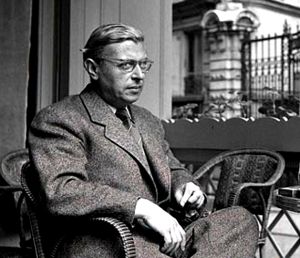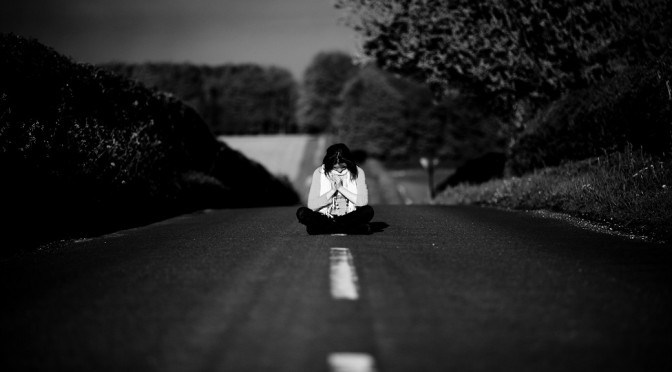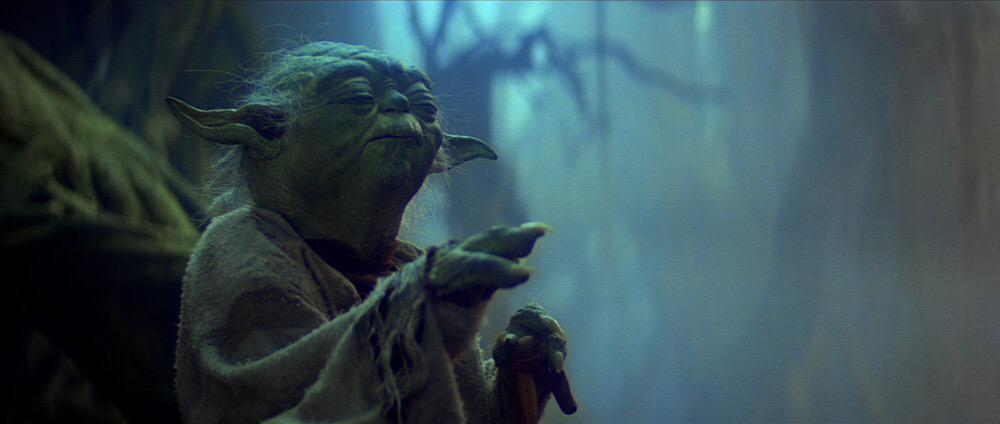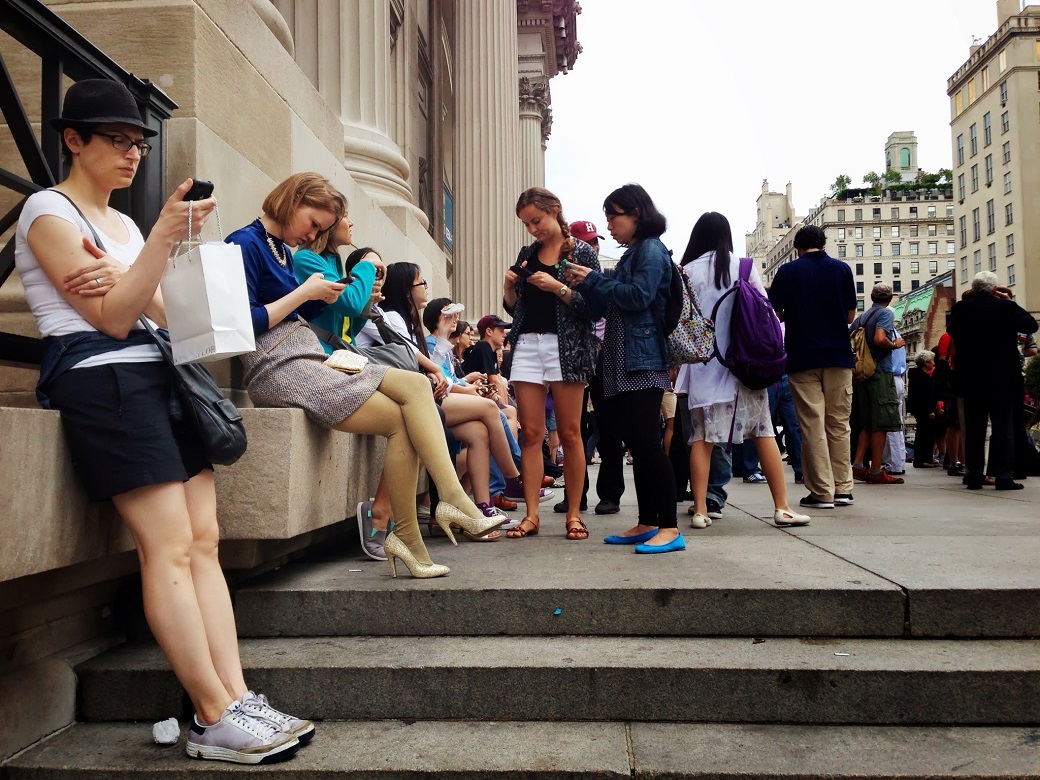One evening I went with my family to a Thai restaurant for dinner. They seated us near the back, not far from the kitchen doors.
A very bubbly waitress brought us our menus, filled our waters and told us to let her know if we needed anything, or had any questions about anything at all.
When she came back, we ordered. “Perfect!” she said with a huge smile, taking our menus. She went off to the kitchen. As soon as she was through the doors, her voice changed. She was chatting with the staff and we could hear every word.
“Oh my God, I was so sick this morning! I couldn’t stop puking. My boyfriend had to hold my hair back for me.” She went on about the trip to bar, the shooters, the cab ride, the stupid friends who didn’t show up. Lots of details and swear words.
Then she came through the doors again, her waitress face back on, and took orders from a few more tables. She went back into the kitchen again. More profane banter. When she brought out our food, she had a wide, wholesome smile, and it was really hard not to laugh.
I didn’t know it at the time, but Jean-Paul Sartre had written about a similar scenario to illustrate a human tendency he called bad faith. His waiter at a cafe seemed to be completely under the spell of his role as a server. He moved too quickly, too snappily. He spoke about the daily specials with an enthusiasm that no food could warrant in real life. His gestures were so ridiculously waiterly that he seemed to have lost track of the fact that he was a free-choosing person, as if there was nothing to him besides his current role.
Sartre believed that we have much more freedom than we tend to acknowledge. We habitually deny it to protect ourselves from the horror of accepting full responsibility for our lives. In every instant, we are free to behave however we like, but we often act as though circumstances have reduced our options down to one or two ways to move forward.
This is bad faith: when we convince ourselves that we’re less free than we really are, so that we don’t have to feel responsible for what we ultimately make of ourselves. It really seems like you must get up at 7:00 every Monday, because constraints such as your job, your family’s schedule, and your body’s needs leave no other possibility. But it’s not true — you can set your alarm for any time, and are free to explore what’s different about life when you do. You don’t have to do things the way you’ve always done them, and that is true in every moment you’re alive. Yet we feel like we’re on a pretty rigid track most of the time.
We often think of freedom as something that can only make life easier, but it can actually be overwhelming and even terrifying. Think about it: we can take, at any moment, any one of infinite roads into the future, and nothing less than the rest of our lives hinges on each choice. So it can be a huge relief to tell ourselves that we actually have fewer options available to us, or even no choice at all.
In other words, even though we want the best life possible, if life is going to be disappointing, we’d at least like that to be someone else’s fault.
When freedom is scary, we pretend it isn’t there
As soon as I learned about the concept of bad faith, I started noticing that I am guilty of it all the time. I might delay on a worthwhile-but-nerve-wracking phone call until it’s no longer an option to make, and tell myself the opportunity slipped through my fingers accidentally. I might pretend I didn’t hear a critical comment so that I didn’t have to decide how to respond to it. I often tell myself I can’t do any worthwhile work unless I have two uninterrupted hours to do it in.
I have a long history of bad faith. Maybe you do too. In high school, I remember deliberately learning as little as possible about scholarship opportunities, because I’d rather not apply for one than apply and see it go to someone else. Afterwards I might even complain that a guy like me could never compete with all the goodie-goodie students who schmoozed with the teachers.
I also used bad faith to rationalize my extreme levels of shyness, making life much harder in the process. Some part of me knew that being a functioning adult meant learning how to engage in small talk. But it was scary, so I told myself that small talk is all vapid and worthless, and I was abstaining from it out of principle, rather than fear. Like a lot of very shy people, I didn’t date in high school because I was afraid of rejection, but told myself it was because I had high standards.
We’ve probably all done this one: you’re dreading a to-do item because it requires a difficult decision. So you put it off, ignoring reminders you’ve set for yourself, putting less-important things ahead of it. You do this even though some part of you knows it has to be done anyway, and delays only make things worse for you. You make excuses why you can’t do it today — “I should get a better sleep before dealing with this” — even though nobody is fooled but yourself, and not even you benefits from your pretending you can’t do it yet. But you do get that hit of relief when you make a new excuse.

All of these kinds of behaviors are ways of denying our own freedom. If we acknowledged all of our options, the obvious thing to do might be something intimidating. Once you’ve acknowledged that it isn’t actually impossible for you to quit smoking, then you have to quit smoking. When freedom is scary, we pretend it isn’t there.
Bad faith is easier to notice in others than ourselves. You’ve almost certainly known people who complain about their situations, and insist that it is beyond their control when it obviously isn’t. When it’s really obvious, we call it a victim mentality. We tell ourselves stories that make us out to be hapless objects in the world — billiard balls on the table, rather than the players.
A former friend of mine perpetually expressed dissatisfaction with his overweight body, and had a shoot-down reason for every possible way to lose the weight. Running is bad for the knees. Restricting your diet leads to eating disorders. Lifting weights is for meatheads. Gyms are trying to rip you off. It was obvious these were not real barriers he ran into when he tried, but ways of arguing that his circumstances alone are responsible for his troubles, and that he was out of moves.
Essentially, all instances of bad faith are performances of some kind, in which we’re acting as though our hands are tied. We’re trying to convince ourselves (often by way of convincing others) that we actually can’t do the right thing, when in fact we simply won’t.
Life is a field, not a corridor
Bad faith leads to living inauthentically — living others’ values because you’re afraid of living your own. It is inherently self-defeating.
Sartre wanted us to really feel our freedom, as an almost physical sensation — the sensation of walking down a corridor, then noticing you were in a field the whole time. It is an exhilarating feeling to consciously go the other way at a juncture where you normally act in bad faith. It feels like you’ve unlocked a hidden area with new skills and possibilities, and that such secret rooms are everywhere.
Whenever you feel a sense of “this is just the way it is”, there is probably some bad faith there. For years I assumed I can’t expect to get any writing done after 5pm — the energy or focus just isn’t there, so I’m practically sentenced to spend the evening reading, watching something on a screen, going out or otherwise not working.
This is an old, self-defeating lie, and there’s no telling what it’s cost me. There’s no barrier at 5pm. The line is completely imaginary. There’s just a strong aversion to my work when I get close to that time of day, and I pretend it’s some kind of natural law.
Our lives are riddled with imaginary lines. Bedtime isn’t a real thing. It’s a choice, every time. Going to work is a choice. Eating lunch is a choice. Letting ourselves down is a choice. Meeting a deadline is a choice, and missing it is a choice, as much as we’d like to believe each of those outcomes was inevitable all along.
Noticing bad faith doesn’t cure it, but it makes it harder to ignore. We can let ourselves suffer certain problems for years, if we think they’re happening to us, the way weather does. But once you recognize a particular condition in your life as ultimately voluntary, its days are probably numbered.
I can’t describe to you how strong a feeling it is, but once it’s past 5pm, it truly feels like I can’t write. It seems like the part of my brain that does that is shuttered like a storefront on a Sunday evening.
But when I actually do sit down at six or seven or eight and start typing, the words come out like any other time. The door was always open, I just walked by it again and again and again.









